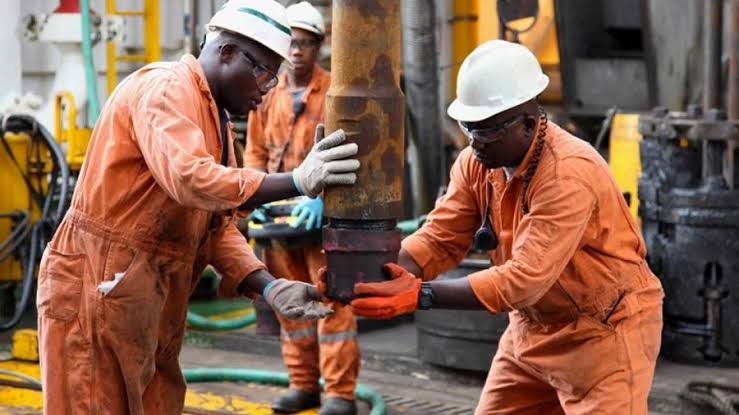The Organization of Petroleum Exporting Countries said on Monday that Nigeria’s average daily crude oil production in July rose slightly to 1.307 million barrels per day.
OPEC’s figures contradict claims by President Bola Tinubu and Nigerian Upstream Petroleum Regulatory Commission chief Gbenga Komolafe that Nigeria’s oil production had increased to 1.6 million barrels per day.
OPEC said in its August 2024 monthly oil market report that Nigeria’s crude oil production increased by an average of 30 barrels per day from 1.27 million barrels per day in June to 1.3 million barrels per day in July.
Journalists reported that Tinubu boasted on national television on August 4 that oil production had increased by more than 300,000 barrels per day in the past month.
He attributed this to reforms announced in May to implement the Petroleum Industry Act. “Our once-declining oil and gas industry is experiencing a resurgence on the back of the reforms I announced in May 2024 to address the gaps in the Petroleum Industry Act.

“Last month, we increased our oil production to 1.61 million barrels per day, and our gas assets are receiving the attention they deserve. Investors are coming back, and we have already seen two Foreign Direct Investments signed off over half a billion dollars since then,” Tinubu explained.
On July 26, 2024, NUPRC’s Komolafe announced that crude oil production in July reached 1.61 million barrels per day.
Komolafe disclosed this during a two-day public hearing and investigative hearing of the House of Representatives Special Committee on Oil Theft and Loss. “As of July 23, 2024, Nigeria’s average daily production stands at 1.61mbpd,” he explained.
His words came just two weeks after the commission said the country’s average daily crude oil production in June was 1.27 million barrels per day.

OPEC, however, in its report said the 1.3 million barrels per day in July was from OPEC member Nigeria, adding that it was based on direct communication.
According to secondary sources, OPEC estimated Nigeria’s daily crude oil production in July at 1.38 million barrels per day, down from 1.36 million barrels per day in the previous month.
In May, Nigeria’s oil production fell to 1.25 million barrels per day, but the Nigerian National Oil Company maintained that the country’s oil production was close to 1.7 million barrels per day. OPEC data showed that Nigeria’s crude oil production fell to 1.25 million barrels per day in May from 1.28 million barrels per day in April, while Nigeria’s production fell by 30,000 barrels per day.
Journalists previously reported that Nigeria’s daily oil production decline turned a corner in April, increasing slightly to 1.28 million barrels per day from 1.23 million barrels per day in March, according to OPEC.
The organization, whose data is always in line with NUPRC data, said Nigeria’s oil production increased by 50,000 barrels per day in April after a recent decline.
The country’s crude oil production fell to 1.23 million barrels per day in March from 1.32 million barrels per day in February.

According to sources directly involved, production fell to 1.322 million barrels per day in January from 1.427 million barrels per day in January. Meanwhile, the Federal Government said it will soon be producing over 2 million barrels per day.
Speaking at a meeting with maritime stakeholders at the Nigerian Navy Headquarters recently, NNPC Group Chief Executive Officer Mele Kyari expressed optimism that the target would be achieved, stressing that NNPC is fully committed to achieving it.
Representing the Managing Director of Pipelines NNPC, Folorunsho Karim, Kyari called on security agencies to continue their efforts against oil theft and pipeline vandalism to help the company achieve its target.
He said, “The target is to increase production to two million barrels by the end of the year, and we are fully committed to doing that. I appreciate the support of the Nigerian Navy in making this possible.
“They have been providing significant support, which has resulted in a reduction in oil theft. Pipeline vandalism has also decreased significantly, and there is a lot currently happening in the industry. We hope to sustain this progress to achieve our target of two million barrels per day by the end of the year.”
































